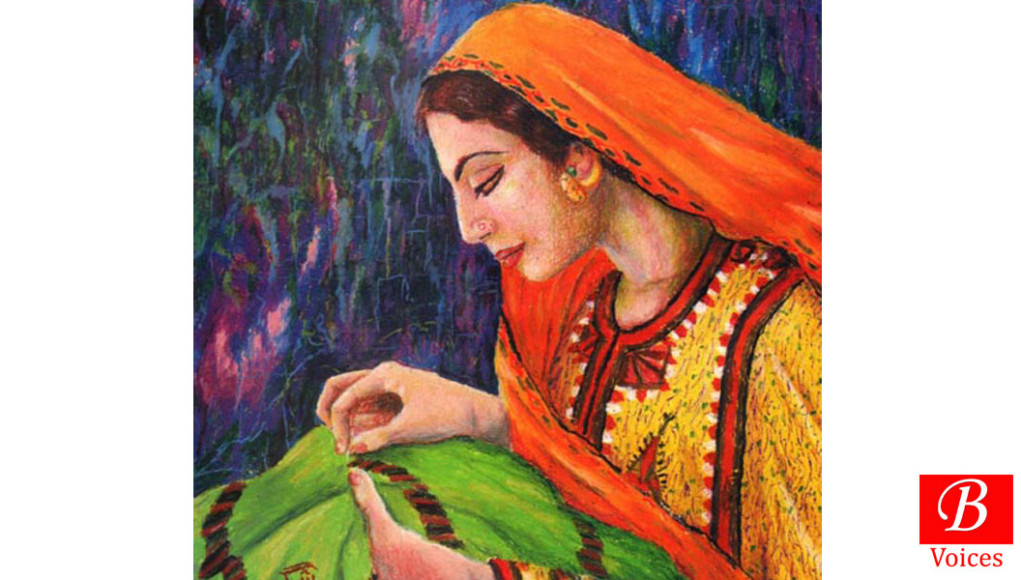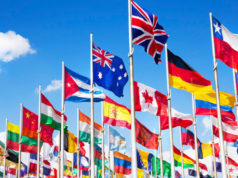Tahira Khan
The Bride is a novel that narrates the struggle of women in Pakistan-specially in the context of tribal areas. Bapsi Sidhwa has authored this novel. She is revered in literary circles due to her contributions to the postcolonial field. She has been awarded the Sitara-i-Imtiaz along with Lila Wallace Reader’s Digest Writers Award. Her other fictional contributions include The Crow Eaters, Ice-candy Man, An American Brat, Water, and Their Language of Love.
As far as The Bride is considered, it is all about partition and the plight of women thereafter. In that spirit, the novel also explores the identity of Pakistan through a migration story. In particular, the novel revolves around a girl named Zaitoon. Zaitoon was four years old when her parents were killed during the partition riots. The novel further narrates how Zaitoon ends up living in Lahore along with Qasim- A tribal from Kohistan, Swat. Qasim is a warring man but he feels immense compassion toward Zaitoon.
Upon adulthood, Qasim fixes her marriage with a fellow tribal, Sakhi, from Kohistan, Swat. This decision proved to be fatal for Zaitoon in the later stages of the novel. At first, friends of Qasim try to dissuade him from the marriage proposal. But, he refuses as he had already given a word. There come the traditional barriers where man is destined to go by his words whatever the consequences are. It also showcases Qasim’s love for his tribe and the town. Perhaps, this novel is a commendable choice to identify when and how a patriarchal society defines the male-female relationship in a society.
Correspondingly, Zaitoon also tries to persuade Qasim but Qasim is left with no choice. How can he defy the norms and values of his tribe? Therefore, he highlights the significance of his respectable traditions and tribe before Zaitoon. For once, Zaitoon seems to agree with Qasim because he brought her up and provided her with every necessity of life. But, every enforced marriage is proved to be a disaster in the end and this is what the novel has also identified.
Soon after marriage, Zaitoon starts facing the torture and animal behavior of her husband, Sakhi. He beats her upon the slightest mistake. He considers beating to uphold his manly superiority. One day, she goes by the near river. When she returns home she faces severe punishment. The male ego of Sakhi could not digest that a woman of his tribe steps aside from a home without seeking permission. In addition to that, the novel also portrays a river that separates the village from the army.
Owing to torture and brazen life, Zaitoon tries to escape the mountains. She decides to go beyond the river and reclaim her previous life. But, Sakhi and tribal ethos remain the main hurdle between Zaitoon and her freedom. At last, she decides to break the barriers and escape the harshness of tribalism. Her escape journey is another fatal anecdote. She leaves home and Sakhi with a few pieces of bread and a blanket.
During the escape journey, she finds rocky hills and barbaric creatures. Being barefoot and roughly clothed, she faces the cold weather to cross the bridge. On the other hand, Sakhi and his tribesmen are in search of her. They unanimously decide to kill her upon finding her. In Kohistan, the tribe shows no mercy upon women who try to flee the brutality and barbarism.
At last, she reaches the river but is half dead. The tough terrain of the mountainous area and cold weather almost snap every bit of energy. But, there awaits another tragedy. In brief, after ten days of an awful and gruesome journey, she reaches the bridge. There, the guard spots her and informs their officer. Firstly, the On-duty major dress her up in an old blanket. Secondly, he lies to the tribesmen that Zaitoon is dead.
Owing to the tribal ego, Sakhi goes home and tells his tribe that he has killed Zaitoon. He also tells them that he buried her with his own hands. In brief, the other side of the bridge ends Zaitoon’s struggle and worrisome life. overall, the story of Zaitoon sheds light on the role of women in a tribal society. It also forces society to take women as human beings and not just commodities. Above all, women must have the choice to live their lives according to their will.
The writer holds an M.Phil Degree in South Asian Studies from the University of Punjab. She can be reached on Twitter @TahiraGhilzai.
Click here to read previous articles of the writer.
Disclaimer: Views expressed in this article are those of the writer and Balochistan Voices does not necessarily agree with them.
Share your comments!








